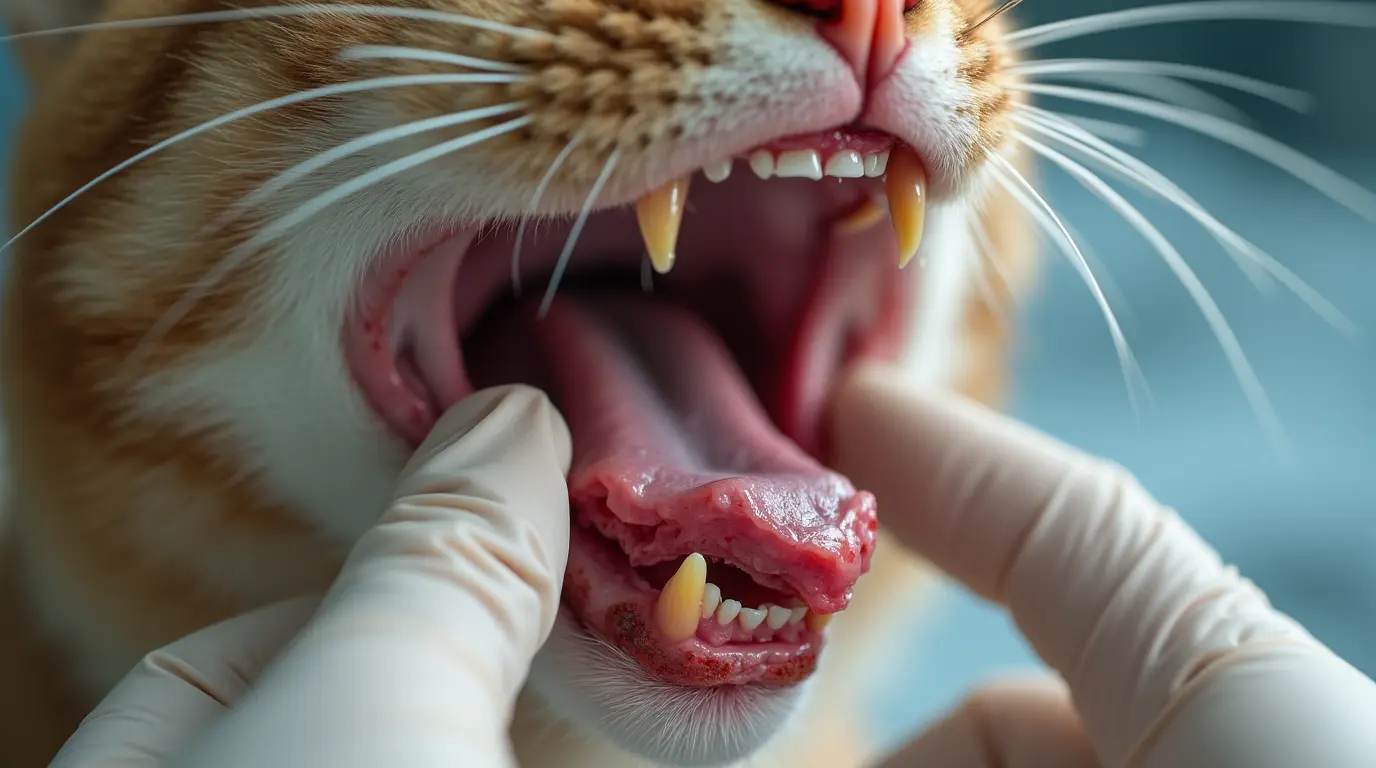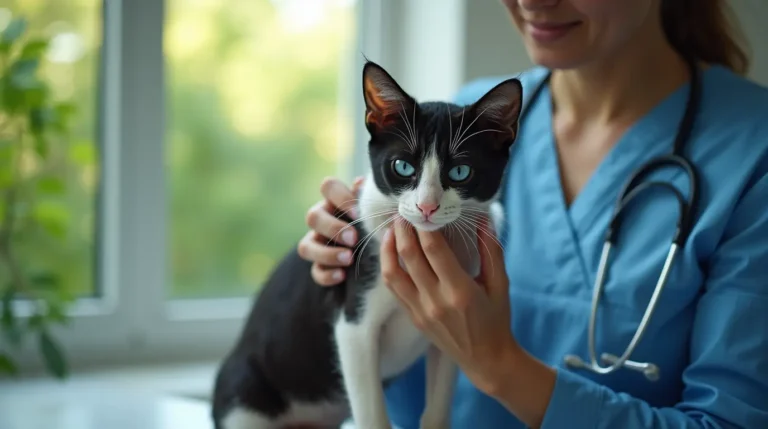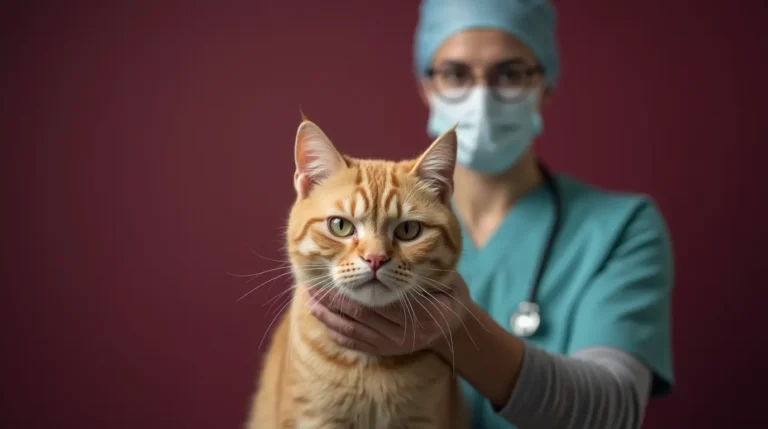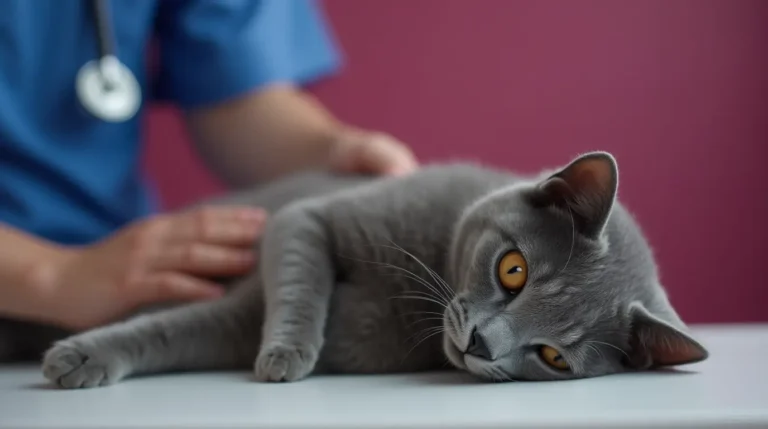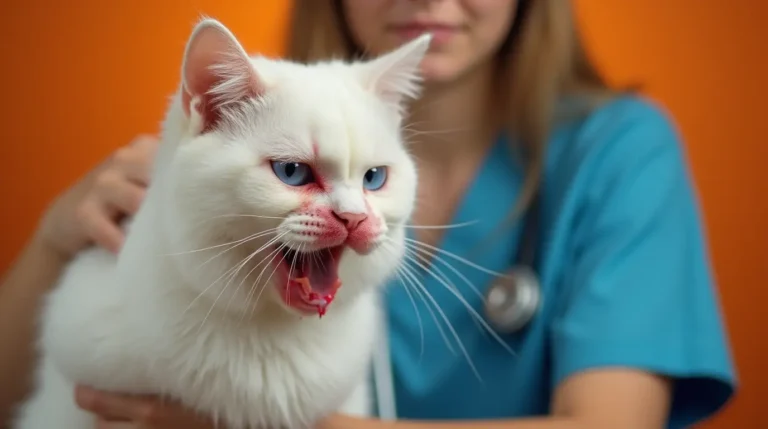Protect your cat’s dental health! Discover essential insights on Gingivitis and Dental Disease in Cats, prevent dental disease, and learn 6 proven ways to maintain your feline’s healthy teeth and gums.
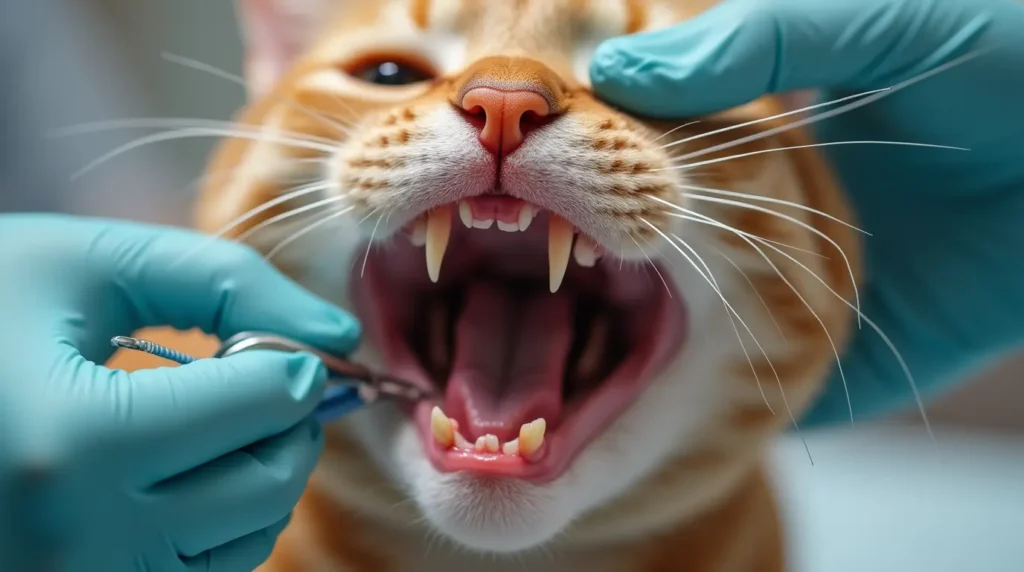
Table of Contents
Dental health is a critical yet often overlooked aspect of feline care. Gingivitis and dental disease can silently impact your cat’s overall well-being, potentially leading to serious health complications if left untreated. As responsible pet owners, understanding the nuances of feline dental health is crucial for ensuring your furry companion’s long-term comfort and quality of life.
In this comprehensive guide, we’ll explore the intricate world of gingivitis and dental disease in cats, providing you with expert insights, preventive strategies, and actionable advice to safeguard your cat’s oral health.
Understanding Gingivitis in Cats
What is Gingivitis?
Gingivitis is an inflammatory condition affecting the gums (gingiva) surrounding a cat’s teeth. Characterized by redness, swelling, and potential bleeding, this early-stage dental disease can progress rapidly if not addressed promptly.
Key Statistics and Risk Factors
- Approximately 70% of cats over three years old experience some form of dental disease
- Specific risk factors include:
- Age
- Breed predisposition
- Diet
- Overall health conditions
- Immune system strength
6 Essential Ways to Maintain Healthy Cat Teeth
1. Regular Dental Hygiene Routine
Brushing Techniques
- Use veterinarian-approved cat-specific toothbrushes
- Select enzymatic toothpaste designed for felines
- Aim for 2-3 brushing sessions per week
Pro Tip: Start dental hygiene routines early to help cats become comfortable with the process.
2. Professional Dental Cleanings
Veterinary Dental Examinations
- Annual comprehensive dental check-ups
- Professional scaling and polishing
- X-rays to detect underlying issues
Recommended Frequency:
| Cat Age | Dental Check-up Frequency |
| 1-3 years | Every 12-18 months |
| 4-7 years | Annually |
| 8+ years | Twice per year |
3. Nutrition and Diet Management
Dental-Friendly Food Choices
- Select kibble designed to reduce tartar buildup
- Consider dental diet formulations
- Incorporate dental treats with specific enzymatic properties
4. Water Additives and Oral Rinses
Supplemental Dental Care
- Use veterinarian-recommended water additives
- Oral rinses targeting bacterial reduction
- Chlorhexidine-based solutions for enhanced protection
5. Recognize Early Warning Signs
Symptoms of Dental Disease
- Persistent bad breath
- Red or swollen gums
- Difficulty eating
- Excessive drooling
- Visible tartar buildup
- Pawing at the mouth
6. Holistic Health Approach
Immune System Support
- Provide balanced nutrition
- Regular veterinary check-ups
- Stress management
- Maintain optimal weight
Recommended Pet Products on Amazon
- Enzymatic Cat Toothpaste
- Cat Dental Cleaning Kit
- Veterinary-Approved Dental Treats
- Oral Health Water Additive
Gingivitis and Dental Disease in Cats (FAQ)
Q1: How often should I brush my cat’s teeth?
Ideally, 2-3 times per week using cat-specific toothbrushes and enzymatic toothpaste.
Q2: Can dental disease affect my cat’s overall health?
Yes, untreated dental issues can lead to systemic health problems, including heart and kidney complications.
Q3: Are some cat breeds more prone to dental issues?
Certain breeds like Siamese and Persian cats may have higher susceptibility to dental problems.
Q4: What’s the average cost of professional dental cleaning?
Professional dental cleanings typically range from $200-$600, depending on your location and the complexity of the procedure.
Call to Action
Want more expert pet care advice? Visit BlithePet.com for comprehensive guides and professional recommendations tailored to your feline friend’s needs!
Conclusion
Maintaining your cat’s dental health is a journey of proactive care, regular monitoring, and professional guidance. By implementing these six strategies, you can significantly reduce the risk of gingivitis and dental disease, ensuring your feline companion enjoys a healthier, happier life.
We’d love to hear about your experiences! Share your cat’s dental care story in the comments below and help fellow pet owners learn and grow.
Disclaimer: BlithePet Always consult with a veterinary professional for personalized advice specific to your cat’s individual health needs.

